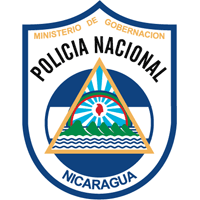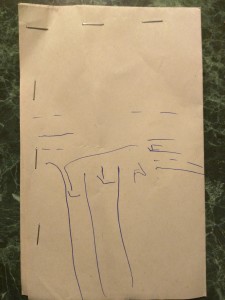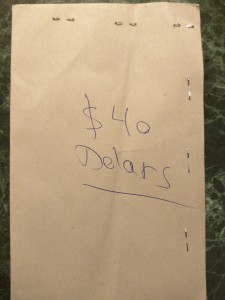 The vagabond life is never boring and two weeks ago was no exception to that rule. Navigating the legal system in a foreign country can be challenging. Much more so when you only understand a little of the language. In the United States (at least in Pennsylvania and Maryland), a U-Turn is permissible unless there is a sign prohibiting it. As luck would have it, Nicaraguans don’t waste a lot of money on road signs. No street signs, no route numbers, there are speed limit signs and appropriately placed “Yield” and “Stop” signs (Ceda el Paso and Alto respectively) but there are few signs of any other kind. And, where there once were signs that had gotten stolen, they still enforce the phantom sign anyway. A puzzling system. Not that that excuses my run-in with the law…twice.
The vagabond life is never boring and two weeks ago was no exception to that rule. Navigating the legal system in a foreign country can be challenging. Much more so when you only understand a little of the language. In the United States (at least in Pennsylvania and Maryland), a U-Turn is permissible unless there is a sign prohibiting it. As luck would have it, Nicaraguans don’t waste a lot of money on road signs. No street signs, no route numbers, there are speed limit signs and appropriately placed “Yield” and “Stop” signs (Ceda el Paso and Alto respectively) but there are few signs of any other kind. And, where there once were signs that had gotten stolen, they still enforce the phantom sign anyway. A puzzling system. Not that that excuses my run-in with the law…twice.
We took off on a road trip in search of the Bavarian Delickatessen in Managua. Sauerkraut is not common fare in the grocery stores here apparently and I just had a hankering for some. The Bavarian Delickatessen was found and the sauerkraut was sold in bulk–not in cans or bags but by the wad. We also found a little bakery next door that had some decent breads (Don Pan–pan meaning bread)–they do something to the bread down here that makes it crumbly without that wonderful bread smell and taste. We suspect the flour here is of a different variety because it seems to be fairly consistent everywhere we go. In any case, we were thrilled with our purchases and were heading back to our apartment when I took a wrong turn and needed to head in the opposite direction on the Masaya Road (Route 4). Just as I would back home (legally, BTW), I came up to a turn lane at a traffic light with no sign barring a U-Turn and, when the left turn light went green, executed a perfect U-Turn that would have brought tears to the eyes of driving aficionados everywhere. Alas, about 200 meters or so down the road and unknown to me at the time sat two Transito Policia–who observed my perfect driving with great interest.
As I approached where they were stopped along four lanes of traffic, one of them casually walked out into the third lane (MY lane), put his hand up, and motioned me to stop and pull over. I knew I was humped. I wasn’t the only one pulled over but that was little comfort.
The real challenge, however, was yet to come. Unlike Costa Rica where you can easily find someone who speaks English, Nicaraguan English speakers are few and far between and, apparently, it’s not a requirement for the police force. Consequently, the entire conversation took place in Spanish–I use the term “conversation” loosely. Pretty much, he talked, I listened. When he got tired of talking to me he called his partner over to finish the conversation–still all in Spanish. I may need hearing aids or a universal translator from Star Trek but the only word I clearly understood was “teeeket.” With great flourish, he also kept motioning that he would keep my driver’s license, put it in an envelope and I would have to pay the fine at bank and then take the receipt to the police station on Monday to get it back. He did this four or five times with a smile. My only ace in the hole was “Lo siento. No entiendo, señor.” (I’m sorry. I don’t understand, sir.). Don’t get me wrong–my ace did nothing for the shitty hand I held and I got the “teeeket” anyway but the police officer couldn’t have been nicer about it.
When we got back to the hotel where our apartment is, I threw myself on the mercy of Evelyn at the front desk who speaks English well. She made a phone call to find out the procedure and made arrangements for a car service driver (Alberto) to take me to the police station and help me navigate the system. Alberto was a god send. We were in and out in mere minutes instead of the half day I expected to spend there.

What I never realized was that there was a hidden message in what the police officer was trying to tell me with a big smile. Just like in the movie Jerry Macquire, “Show me the money” and “Help me help you” were the actual themes of the conversation I didn’t understand. His repeated motioning and explanation that my license would go into an envelope and I’d have to go to the police station to retrieve it were veiled attempts at soliciting a payoff. Oh, dopey me…. Had I slipped him a few Cordobas, the entire episode would have evaporated into a “warning” without the hassle of keeping my license (“Help me help you”).
Not to be limited in my desire to give money to the police, I got stopped a second time a few days later for an “illegal lane change,” a bullshit charge but fairly common here in Nicaragua. In any case, I now had a better understanding of what the officer was telling me. He even drew a diagram showing what a shitty driver I was (see diagram).

He then showed me a folded card that indicated the fines for various offenses and pointed out the one that pertained to my high crime. On the paper on which he drew the diagram he wrote “$40” and showed it to me with a smile. Jerry Macquire came to the rescue as I “helped him help me” for 500 Cordobas (about $20). I tried to hand it to him but he made it clear I should put it inside the “fine card” and hand the card back to him–thus, no money was seen being handed out the window. He returned my driver’s license with a smile and we were on our way.
I swear that rental cars here have an invisible Bat Signal on them that only the police can see.

Have to love their system. Been caught in it too!
Gotta Love It!!!!
Having been an observer for one of those tickets, it brought a big smile to my face and a lot of other wonderful memories of my visit. Thanks again.
At least they didn’t throw you in the clink! Glad to know you’ve got the system figured out.